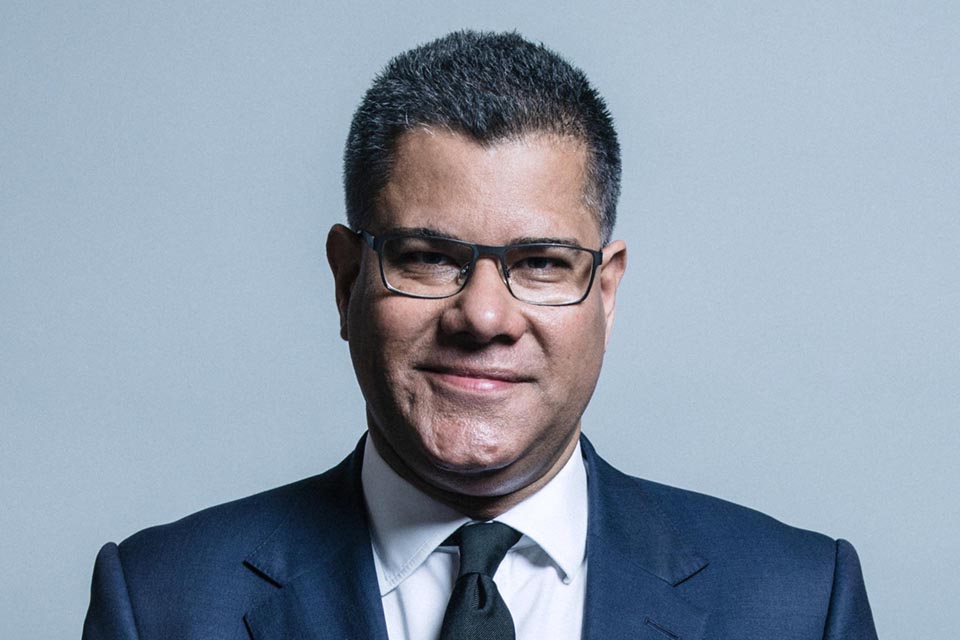Progress on climate action but with more to do on the road to COP26
COP26 President Alok Sharma at the closing of the 12th Petersberg Climate Dialogue, co-hosted by the UK and Germany.

And so, Ministers and friends, we have reached the end of this year’s Petersberg Climate Dialogue.
And I want to thank everyone for their very active participation over the last two years. And we’ve had some frank discussions, which I think have been so important.
Of course we haven’t fixed some of these outstanding issues but we have made progress.
We’ve had a rich exchange of views in terms of what we need to do ahead of COP26.
And I think we have actually Improved our collective understanding of what is important to individual parties as well.
Like Patricia, I do leave this meeting, this dialogue, feeling convinced that there is a political will to compromise and that, ultimately, there is a desire to reach a balanced negotiated outcome in Glasgow.
We know that this outcome has to match the scale and urgency of the climate crisis. And, again, it has to unlock the enormous opportunities that are presented by the move to a net zero, resilient future. Green growth, jobs, but at the same time cleaning up our environment.
We have to maintain the momentum.
So, I have said I intend to convene ministers in-person in July, to shape the Glasgow outcome, and to make further progress on some of these key issues that require a political resolution. The point of that gathering is to focus on tangible solutions.
And of course, this will follow on from the virtual meeting of the G7 Climate and Environmental Ministers which is going to be held as part of our G7 Presidency.
As well as the G7 Leaders’ Summit in June, where I hope our shared commitment to tackling the twin challenges of climate change and biodiversity loss and building back greener across the world will build even more momentum for ambition on the road to Glasgow.
I think there was a clear consensus yesterday that we need to make more engagement, have a sustained process on Article 6 - and that’s going to be required over the next 6 months.
I am happy to announce that I have requested, and they have agreed, for Minister Koizumi of Japan, and Minister Fu of Singapore, to lead a series of informal discussions on Article 6 with interested parties. And then to report back to me ahead of the July physical meeting of ministers.
But there are a range of matters that we’ve heard about over the past two days on loss & damage, finance, common time frames, transparency - they all require political attention as well.
And I think the good thing is that there is a willingness amongst all of us to discuss these further, and we should do that once our negotiators have made progress on developing solutions.
So, I will be taking an equivalent approach to that which we are taking on Article 6, once the July meeting has concluded.
So let’s get our negotiators working on that, particularly at the Subsidiary Bodies meeting in June.
And I’d really urge all of you to instruct your negotiators to engage actively and constructively at the June meeting to make as much progress as possible. You as ministers have to please give them the mandate to be flexible in their pursuit of their solutions. It’s only through compromise that we are going to make progress and some of these issues have been outstanding for several years.
We have to arrive in Glasgow having done our homework. We cannot arrive at Glasgow not having completed that if we want to actually reach an agreement.
I do sense there is a will there. We know that the cause is urgent and really importantly, we have to understand that the public in our countries, society in all our countries, is absolutely hungry for us collectively to reach solutions here.
In conclusion, I would ask us to maintain momentum, empower our negotiators, so we can reach an outcome in Glasgow that delivers for people and planet.
Thank you again for the last two days. We will continue to discuss and talk in the next 6 months, which are going to be critical.